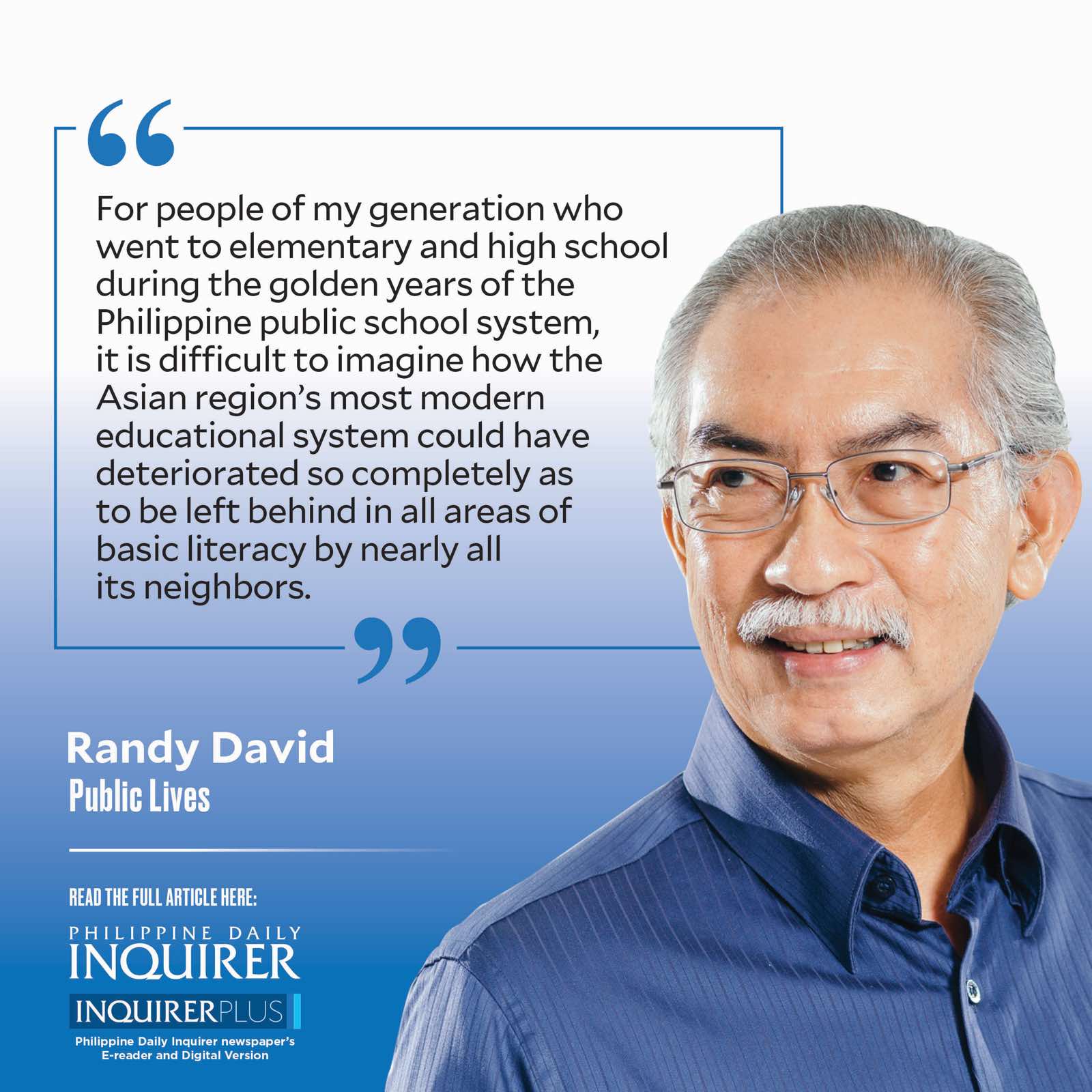Education: Mirror of a deeper crisis

One of the most useful insights on education I have come across sums up the function of education as the preparation of individuals to live in future social systems. I’m paraphrasing the sociologist Niklas Luhmann, but the key word in his concept is “future.” It’s hard enough to prepare our children to live in the present. It’s harder to imagine what form of education would minimally equip them to live in the future.
Given the pace of development in artificial intelligence and the biological sciences alone, our young people would have to be equipped with a robust mathematical and scientific foundation to enable them to handle increasingly complex problems and emerging innovations in science and technology. At the same time, in the face of the myriad challenges posed by globalization, they would have to develop a special quality of mind and a steady moral compass that could keep them oriented through periods of technological and social disruption.
My sense is that our country is scarcely prepared or inclined, at this time, to undertake any meaningful reforms that would radically improve educational outcomes. In the next few years, we could lose even our present position as the world’s leading supplier of online business processing services, seafarers, and domestic service workers. Our people would simply struggle to pass increasingly stiffer global competency standards. More spending on teacher training and educational infrastructure may not necessarily improve the average Filipino student’s capacity to learn or absorb new knowledge. The problem, as the recent Second Congressional Commission on Education (EdCom II) report shows, is that many Filipino children have been so intellectually stunted by chronic malnutrition and other health problems that by the time they enter school, any formal education would likely have only limited positive results. Moreover, the absolute poverty of their families and communities precludes the formation of an environment conducive to lifelong learning.
Educational reforms will thus have to be complemented by intervention at the level of the family and community. The conditional cash transfer program, or “4Ps,” as we call it here, is a step in the right direction in that it is primarily aimed at making sure that the interests of the child learner are protected by the state from the moment of its growth in its mother’s womb. However the amount of financial assistance given out under the present program is so meager that these cash transfers could hardly alter the disadvantages and disparities created by decades of underdevelopment, inequality, and exclusion. There has to be a real redistribution of wealth through wealth taxation and significant increases in the share of the bottom half of the country’s families.
A close analysis of the 2018 Programme for International Student Assessment results performed by EdCom II and the Philippine Institute for Development Studies shows the effects of poverty on Filipino students’ reading proficiency in graphic terms. In the top 20 percent of the economic ladder, with an average of 396 points, 45 percent of students can read. On the other hand, among the poorest 20 percent, posting an average score of only 298, only 4 percent showed the barest minimum reading proficiency. The Organization for Economic Cooperation and Development average is 487.
Among urban students, 20 percent could read, compared to only 6 percent for those coming from rural areas. The same pattern may be observed when students are classified according to whether they come from public or private schools. Only 15 percent of those from public schools could read, whereas it is 56 percent of students from private independent schools (those receiving less than 50 percent of their core funds from government). Such differences in test outcomes, reflecting disparities in income and sociocultural status, may be seen as well in the results for mathematics and science.
It seems incredible to be told that only one out of five Filipino 15-year-olds enrolled in school possesses the minimum level of reading proficiency. If the rest of the 80 percent can’t read at that age, we can’t expect them to solve practical math problems or know any basic science, which, of course, requires being able to comprehend a problem in a test question.
For people of my generation who went to elementary and high school during the golden years of the Philippine public school system, it is difficult to imagine how the Asian region’s most modern educational system could have deteriorated so completely as to be left behind in all areas of basic literacy by nearly all its neighbors. We used to be the model of public education and the undisputed center of higher learning in the region. At the University of the Philippines and other universities in the early ’60s, foreign students formed a sizable presence in the academic community. The top public high school graduates from every province competed with the best from the elite private high schools. All were driven in their studies by a clear sense of nation and a vision of personal growth closely intertwined with that of the nation’s progress.
Today, we are confronted by educational outcomes that are as unimaginable as they are unacceptable. We can only hope that our political and business leaders, our academics here and abroad, and leading scientists and professional practitioners in all fields, whether or not they benefited from the country’s educational system when it was in much better shape, would see in its present crisis an invitation to review what has happened to the whole country in the last 50 years and to urgently act to reverse the drift to comprehensive national failure.
—————-
public.lives@gmail.com




















